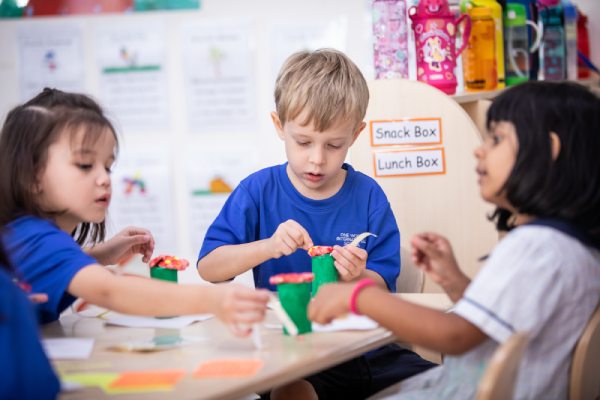Preschool Decisions Can Be Overwhelming
For many parents, the process of choosing a preschool is both exciting and stressful. It’s often a child’s first experience in a formal learning setting, and the decision can feel like it will shape their entire future. With so many philosophies, teaching styles, facilities, and opinions out there, how do you know which preschool is the “right” one?
The truth is, the perfect preschool isn’t about high-tech toys or Instagram-worthy classrooms. It’s about finding a nurturing environment where your child can feel safe, curious, and valued. Let’s walk through the real factors that matter when picking a preschool that fits your family’s needs and your child’s personality.

Start With Your Child’s Needs
Every child is unique. Some are naturally social and energetic, while others may be shy and sensitive. Understanding your child’s personality can help you choose a preschool that suits their emotional and developmental needs.
Ask Yourself These Questions:
- Is my child independent or do they need extra support with transitions?
- Does my child prefer small groups or thrive in a busier, social setting?
- What kind of routine or structure helps my child feel comfortable?
- Is my child ready for a full-day program, or better suited to part-time?
There is no one-size-fits-all approach. The best preschool is the one that helps your child flourish at their own pace.
Preschool Teaching Philosophies Explained
Preschools often follow specific philosophies that guide how they approach learning. Understanding these can help you narrow down your choices.
Popular Preschool Approaches:
| Philosophy | Key Features |
|---|---|
| Montessori | Child-led learning with hands-on materials; emphasizes independence |
| Reggio Emilia | Project-based learning with a focus on creativity and collaboration |
| Waldorf | Emphasizes imagination, rhythm, and natural materials |
| Play-Based | Children learn through guided play rather than formal instruction |
| Academic | Structured curriculum focusing on early reading and math skills |
Visit a few different types if possible, and observe which environment your child seems most at ease in.
What to Look for During a Preschool Tour
Visiting the school in person (or via a virtual tour) is essential. This is your opportunity to observe how teachers interact with children, the classroom setup, and the overall atmosphere.
Checklist for Preschool Visits:
- Are the classrooms clean, bright, and welcoming?
- Do teachers speak to children with kindness and patience?
- Is there a clear daily schedule that includes play, meals, learning, and rest?
- Is outdoor time a regular part of the day?
- Do children seem engaged and happy?
- Are safety protocols (like secure entryways and clean bathrooms) in place?
Take notes during your visit. Trust your gut feeling—sometimes it says more than any brochure.
Don’t Overlook Teacher Quality
A shiny classroom means nothing without great teachers. Passionate, well-trained educators are the heart of any successful preschool. Ask about staff qualifications, teacher-to-child ratios, and staff turnover.
Low turnover usually indicates a positive, supportive environment—for both kids and teachers. Look for caregivers who genuinely enjoy being around young children and know how to guide them through challenges with empathy and humor.
Preschool Should Reflect Your Values
Whether you’re focused on kindness, creativity, diversity, or early academics, the preschool you choose should align with your family’s values. This creates a sense of consistency for your child between home and school.
Think About:
- Does the school teach conflict resolution and emotional development?
- Is cultural inclusion and diversity a part of their curriculum?
- Do they encourage parent involvement and open communication?
- What is their policy on screen time, discipline, and snacks?
If the preschool’s philosophy feels like an extension of your home, your child will likely feel more secure and engaged.
Cost and Location Matter Too
While the emotional and developmental factors are key, logistics still play a big role. Consider the following:
| Factor | Why It Matters |
|---|---|
| Tuition and Fees | Choose a program that fits your budget comfortably |
| Proximity to Home/Work | Reduces stress for morning drop-offs and pick-ups |
| Hours of Operation | Make sure the schedule aligns with your work or family routine |
Even the most perfect school won’t work if it causes daily strain for your family.
Conclusion
Choosing a preschool is one of the first major decisions you’ll make in your child’s educational journey—but it doesn’t have to be overwhelming. Focus on your child’s needs, visit different programs, ask thoughtful questions, and look for passionate educators. The best preschool is not the fanciest or the most expensive—it’s the one where your child feels safe, understood, and excited to learn every day. With a little research and reflection, you’ll find a place that supports your child’s growth and gives your family peace of mind.